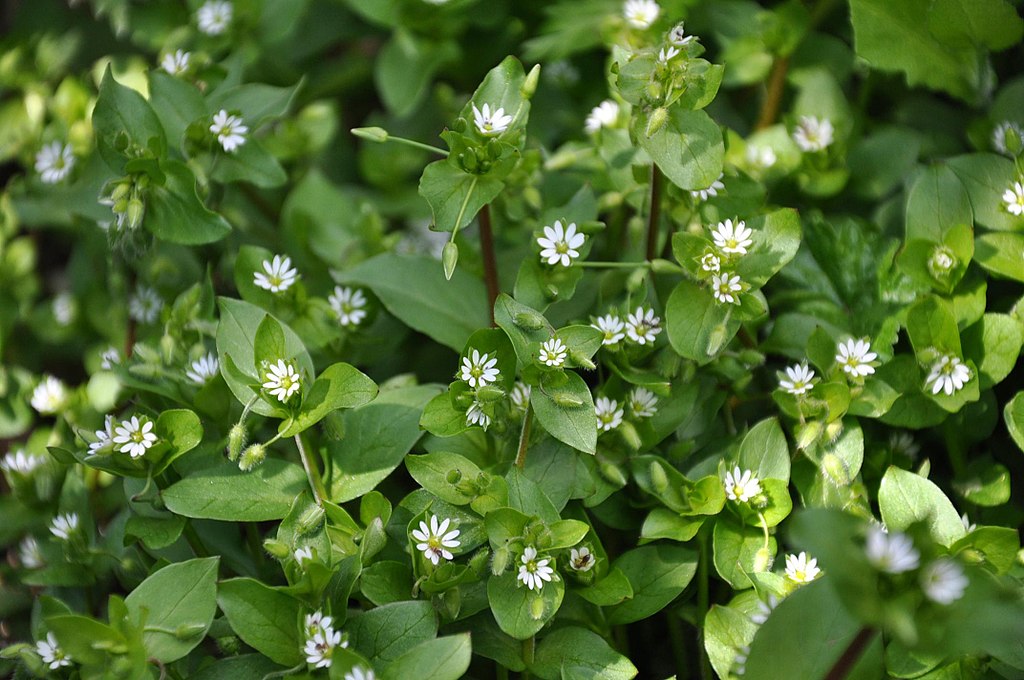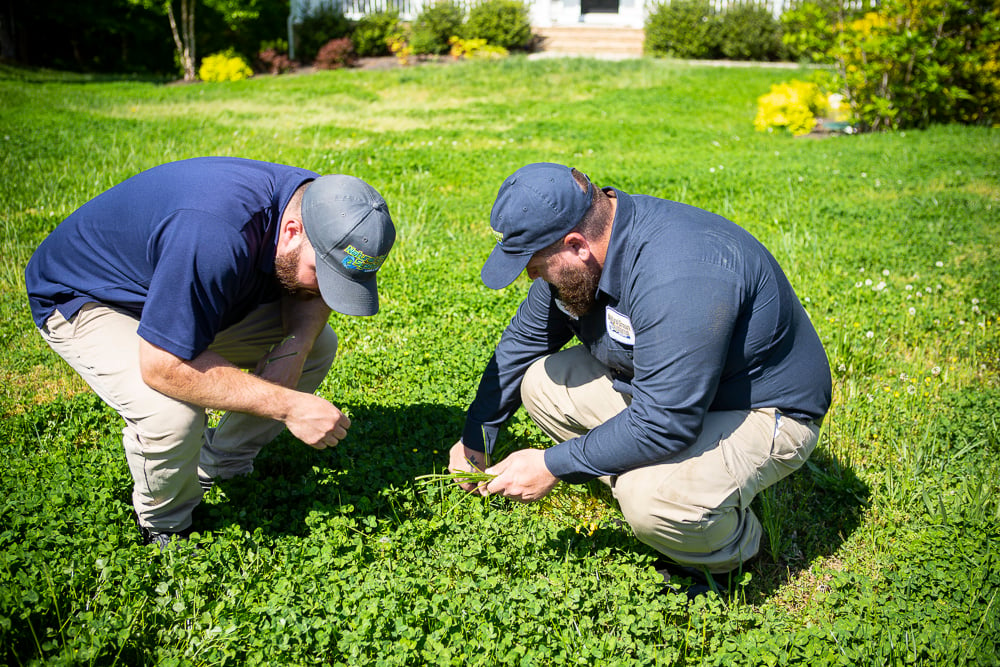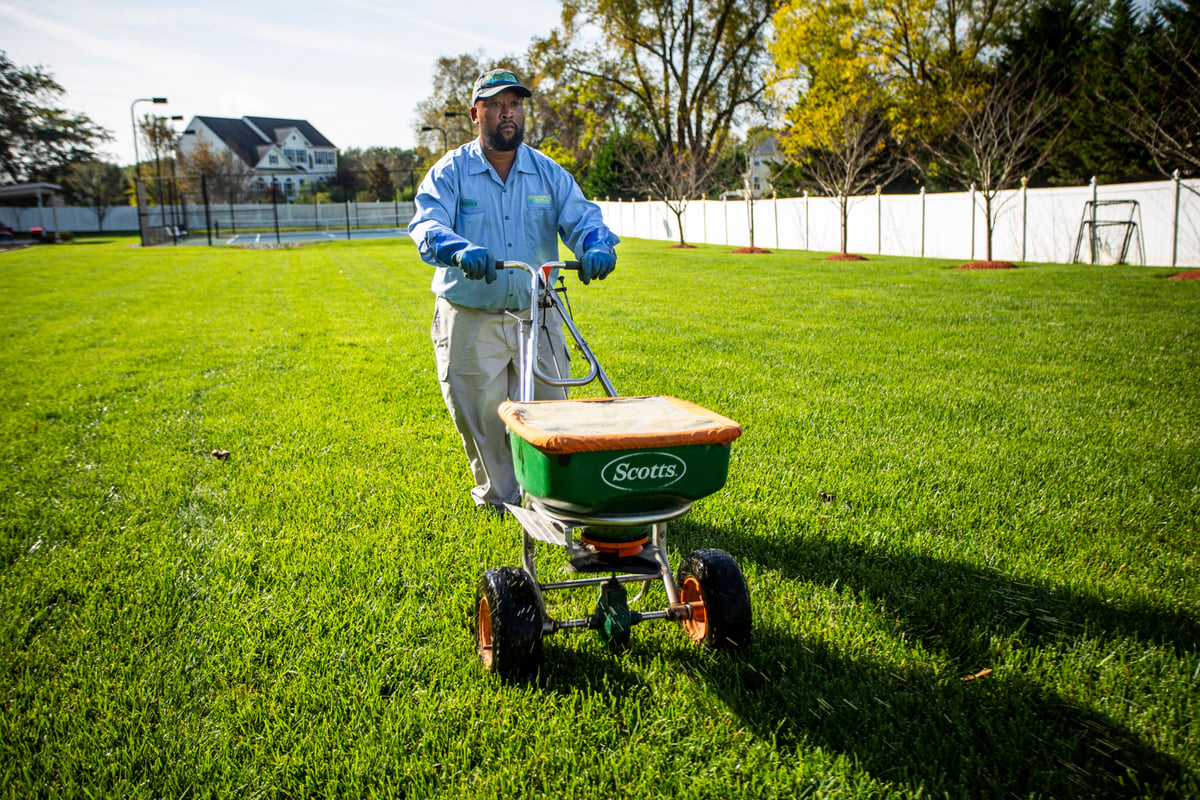How to Kill Chickweed in Your Lawn: Tips for Maryland Homeowners
You might be stepping outside when the weather warms up in spring, looking at your lawn and watching everything wake up.
What spoils this picture more than anything is weeds, especially a nuisance weed like chickweed.
It can germinate pretty fast when you least expect it and then you see it in spring and wonder where it came from.
Chickweed in your lawn can certainly be daunting. To battle this weed, you need to understand more about when it germinates and how it operates so you can wage a successful war against it in your Maryland lawn.
Understanding Chickweed in Your Lawn
If chickweed is a persistent weed in your lawn, you may be wondering how it got here and what kind of chickweed control might be necessary.
Use This Tool to Compare Your Local Lawn Care Companies
You certainly don’t want it to spread any further. You want to stop the lawn weed from spreading. Here’s what you need to know about chickweed in your lawn to gain better control of it.
What Does Chickweed Look Like?
Chickweed is an invasive weed species in North America. It came to the area years ago and has since become one of the most common weeds on Central and Southern Maryland lawns.
 Chickweed grows low to the ground and has small leaves and white flowers. There are five petals on each of the flowers, resembling small stars. It spreads quickly from new roots, making it a prolific nuisance weed.
Chickweed grows low to the ground and has small leaves and white flowers. There are five petals on each of the flowers, resembling small stars. It spreads quickly from new roots, making it a prolific nuisance weed.
When Does Chickweed in Your Lawn Germinate?
Chickweed is a cool-season winter annual weed that actually germinates in the fall. This is when moisture increases, days lengthen, and temperatures cool, and this weed likes those conditions.
Then it overwinters. In February and March, that chickweed in your lawn will come back and continue growing, becoming more noticeable.
 Chickweed can flower in a month and then set seeds in two to three months.
Chickweed can flower in a month and then set seeds in two to three months.
Why is Chickweed in Your Lawn a Problem?
Chickweed in lawns competes with your desirable grass for nutrients and water.
One of the biggest problems with chickweed is that it produces very large quantities of seeds – an individual plant can produce an average of 25,000 seeds.
How to Get Rid of Chickweed
The best time for chickweed control is in the fall with a preemergent herbicide. This catches the weed before germination.
If control is missed in the fall, you can tackle it with a broadleaf weed control in spring. We prefer two blanket applications – one in spring and one in fall – to ensure control.
A Healthy Lawn is Great Defense Against Weeds, Including Chickweed
Weeds are opportunistic. They see a lawn that lacks nutrients, lacks drainage, is thin or stressed out, and they attack without hesitation.
Maintaining a healthy lawn can help with chickweed control, as well as managing other weeds.
 A healthy lawn is one that is mowed to a 3- to 4-inch height, watered appropriately (not too much and not too little), and has the proper balance of nutrients through fertilization that is based on soil test results. The goal is to create an optimum environment for grass to grow over weeds. A thick, thriving lawn has the power to repel weeds … but they can still break through.
A healthy lawn is one that is mowed to a 3- to 4-inch height, watered appropriately (not too much and not too little), and has the proper balance of nutrients through fertilization that is based on soil test results. The goal is to create an optimum environment for grass to grow over weeds. A thick, thriving lawn has the power to repel weeds … but they can still break through.
We’re Here For You When Chickweed Shows Up in Your Lawn
Many times weed seeds like chickweed can sit and wait until the conditions are just right to erupt. And every weed is different and thrives in different conditions. When chickweed takes over your lawn, it can make your yard look like the most neglected one on the block.
If you see chickweed in your lawn, you might become frustrated and not know how to control it. Don’t fret. We’ve got your back.
Choosing Natural Green Systems for complete, proactive lawn care services in Central and Southern Maryland that include proper fertilization, as well as both weed preventive and curative treatments throughout the growing season, can give you the peace of mind you need because it’s the best way to keep your lawn weed-free.
Just like lawn weeds hang out for a while once they appear, they also don’t just disappear overnight. Unfortunately, weed seeds are everywhere. They could be lurking in your neighbor’s yard or fall out of that bird’s beak as it flies overhead. With consistent monitoring and control, as well as building up lawn health, you can give your lawn a chance to fight back and become more weed resistant.
Are lawn weeds keeping you from having a lawn you can be proud of? Natural Green Systems would love to learn more. Get started today with a free quote. Together, we’ll prepare a customized plan that leads you to the best choice for you and your lawn.
Image Source: Chickweed
You might be stepping outside when the weather warms up in spring, looking at your lawn and watching everything wake up.
What spoils this picture more than anything is weeds, especially a nuisance weed like chickweed.
It can germinate pretty fast when you least expect it and then you see it in spring and wonder where it came from.
Chickweed in your lawn can certainly be daunting. To battle this weed, you need to understand more about when it germinates and how it operates so you can wage a successful war against it in your Maryland lawn.
Understanding Chickweed in Your Lawn
If chickweed is a persistent weed in your lawn, you may be wondering how it got here and what kind of chickweed control might be necessary.
Use This Tool to Compare Your Local Lawn Care Companies
You certainly don’t want it to spread any further. You want to stop the lawn weed from spreading. Here’s what you need to know about chickweed in your lawn to gain better control of it.
What Does Chickweed Look Like?
Chickweed is an invasive weed species in North America. It came to the area years ago and has since become one of the most common weeds on Central and Southern Maryland lawns.
 Chickweed grows low to the ground and has small leaves and white flowers. There are five petals on each of the flowers, resembling small stars. It spreads quickly from new roots, making it a prolific nuisance weed.
Chickweed grows low to the ground and has small leaves and white flowers. There are five petals on each of the flowers, resembling small stars. It spreads quickly from new roots, making it a prolific nuisance weed.
When Does Chickweed in Your Lawn Germinate?
Chickweed is a cool-season winter annual weed that actually germinates in the fall. This is when moisture increases, days lengthen, and temperatures cool, and this weed likes those conditions.
Then it overwinters. In February and March, that chickweed in your lawn will come back and continue growing, becoming more noticeable.
 Chickweed can flower in a month and then set seeds in two to three months.
Chickweed can flower in a month and then set seeds in two to three months.
Why is Chickweed in Your Lawn a Problem?
Chickweed in lawns competes with your desirable grass for nutrients and water.
One of the biggest problems with chickweed is that it produces very large quantities of seeds – an individual plant can produce an average of 25,000 seeds.
How to Get Rid of Chickweed
The best time for chickweed control is in the fall with a preemergent herbicide. This catches the weed before germination.
If control is missed in the fall, you can tackle it with a broadleaf weed control in spring. We prefer two blanket applications – one in spring and one in fall – to ensure control.
A Healthy Lawn is Great Defense Against Weeds, Including Chickweed
Weeds are opportunistic. They see a lawn that lacks nutrients, lacks drainage, is thin or stressed out, and they attack without hesitation.
Maintaining a healthy lawn can help with chickweed control, as well as managing other weeds.
 A healthy lawn is one that is mowed to a 3- to 4-inch height, watered appropriately (not too much and not too little), and has the proper balance of nutrients through fertilization that is based on soil test results. The goal is to create an optimum environment for grass to grow over weeds. A thick, thriving lawn has the power to repel weeds … but they can still break through.
A healthy lawn is one that is mowed to a 3- to 4-inch height, watered appropriately (not too much and not too little), and has the proper balance of nutrients through fertilization that is based on soil test results. The goal is to create an optimum environment for grass to grow over weeds. A thick, thriving lawn has the power to repel weeds … but they can still break through.
We’re Here For You When Chickweed Shows Up in Your Lawn
Many times weed seeds like chickweed can sit and wait until the conditions are just right to erupt. And every weed is different and thrives in different conditions. When chickweed takes over your lawn, it can make your yard look like the most neglected one on the block.
If you see chickweed in your lawn, you might become frustrated and not know how to control it. Don’t fret. We’ve got your back.
Choosing Natural Green Systems for complete, proactive lawn care services in Central and Southern Maryland that include proper fertilization, as well as both weed preventive and curative treatments throughout the growing season, can give you the peace of mind you need because it’s the best way to keep your lawn weed-free.
Just like lawn weeds hang out for a while once they appear, they also don’t just disappear overnight. Unfortunately, weed seeds are everywhere. They could be lurking in your neighbor’s yard or fall out of that bird’s beak as it flies overhead. With consistent monitoring and control, as well as building up lawn health, you can give your lawn a chance to fight back and become more weed resistant.
Are lawn weeds keeping you from having a lawn you can be proud of? Natural Green Systems would love to learn more. Get started today with a free quote. Together, we’ll prepare a customized plan that leads you to the best choice for you and your lawn.
Image Source: Chickweed
Share This
Topics: Lawn Care


